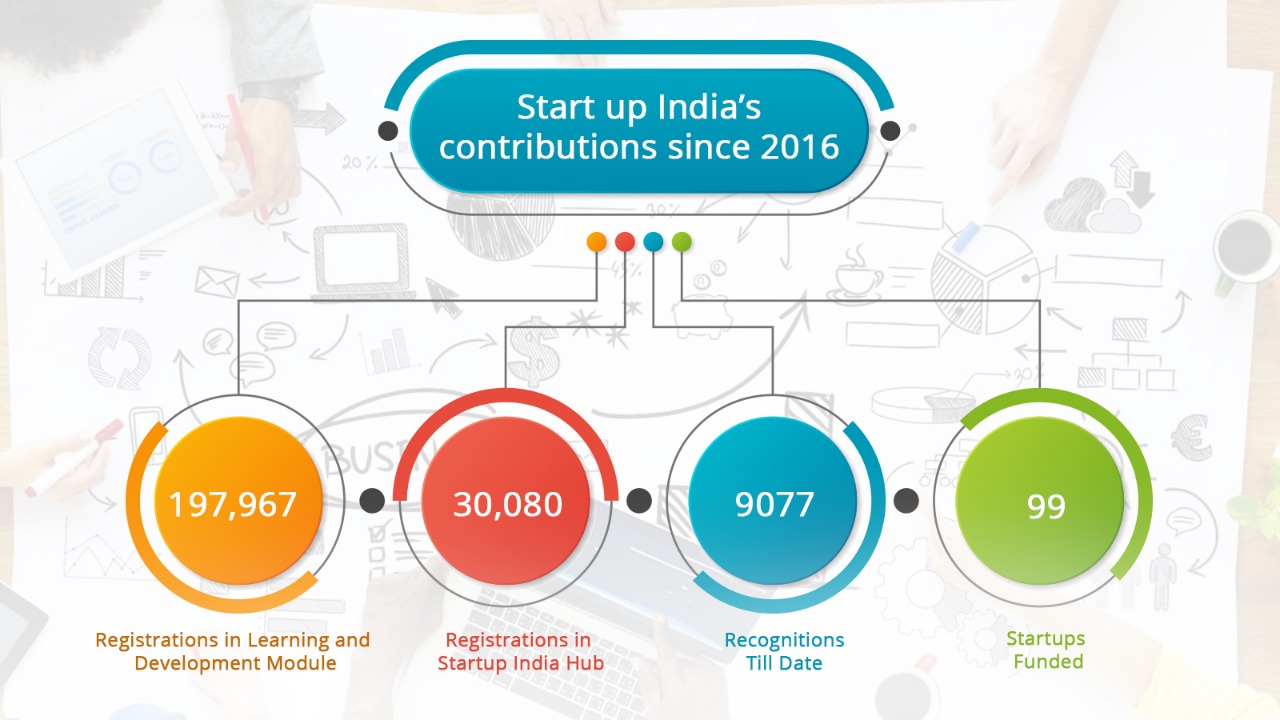Startups: an indispensable part of government policies
India, with its unique demographic advantages and cultural heritage, withholds immense potentials to prosper in the prevailing gen-x era of development by enabling opportunities for the youth population in the nation. Investors, big and small enterprises and entrepreneurs, non-governmental organizations are an integral part of the Indian entrepreneurial ecosystem.
Our country has witnessed a wide spectrum of ideas and opportunities in the recent times which have promoted innovation across various sectors in Indian economy. The government has also taken a leap ahead towards recognizing the importance of entrepreneurship and economic participation of small firms by framing the plans and policies geared towards bringing the youth upfront to India’s entrepreneurial ecosystem.
India has a huge population of more than 1.2 billion people across the country, out of which 31% are between the ages of 18 and 35. This gives birth to the need for addressing the critical needs of the country in areas like affordable healthcare, education, financial inclusion, unemployment etc. Today India needs more than 10 million jobs a year. Startups have the potential to enhance the employment creation by introducing the important technological enhancements and increased competitive dynamics in the countries market.
Indian Government launched ‘The Start-up India, Stand up India mission’ on January 16, 2016 understanding the importance of startups for employment and economic growth. With its untapped potential market, India has attracted many developed nations which are now looking to gain maximum benefits by taking different initiatives to link up their business with the Indian startups of various sectors. Formation of such joint ventures has attracted the huge foreign funds in the recent times which will further boost the country’s economic growth.
We are poised to become the youngest country by 2020 with an average age of 29 years, accounting to 28% of the world’s workforce, taking this into consideration, the state governments need to explore scientific and technology ecosystems through startups & incubators that would further empower the youth. The Government of India has come up with proper specifications indicating its sincere efforts in the domain to assist the aspiring entrepreneurs. The Indian startup ecosystem has been maturing with a lot of virtue, to be more strong and valuable with the availability of talent, state government initiatives, local infrastructure confidence and infrastructure support enabling micro-entrepreneurship in semi-urban and rural areas leading to the creation of more value.
India has witnessed an addition of more than 1,500 startups so far strengthening its position as the third largest startup ecosystem across the world, amidst intensifying competitions from developed nations like UK and USA. The government of India has instituted measures to create a conducive startup ecosystem by facilitating collaboration between government, industry, and institutions through sustainable and innovative startup promotions.
Gujarat is known for its Entrepreneurial spirit in the country. It has the oldest Incubator for innovation and entrepreneurship in the country. A Gujarat Startup Development Society was also established by the Government of Gujarat in the year 2015 with an aim to assist startups and incubators for procurement of funds, self-certification, compliances, etc. The government has a vision of developing the state as a vibrant and successful startup hub which lays the foundation of modern economic development driven by innovative enterprises ultimately leading to job creation opportunities for people in Gujarat. Under the aegis of ‘Startup India Campaign’, The Govt. has also created a ‘GVFL Startup Fund’ of Rs.250 crore towards promoting the innovative startup ecosystem.
It is rightly said, the trust and faith invested in young minds and new ideas will take the growth of this country ahead and help the developing country to achieve new heights.



Leave A Comment